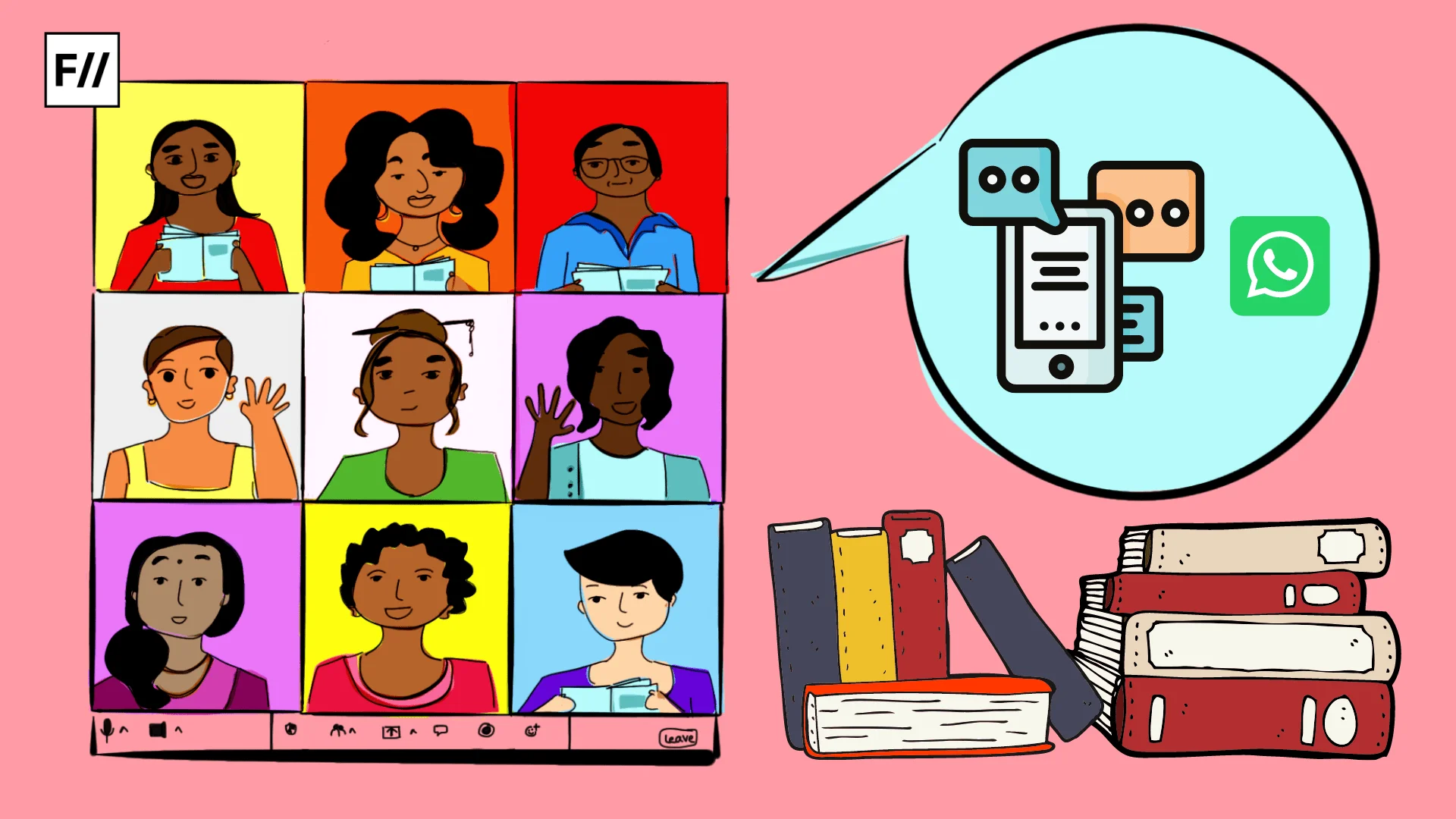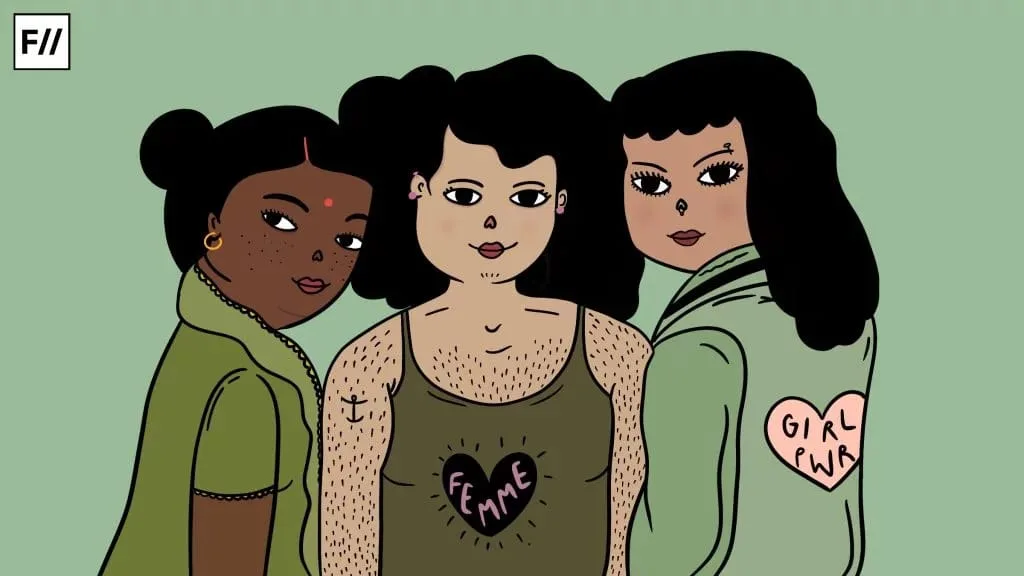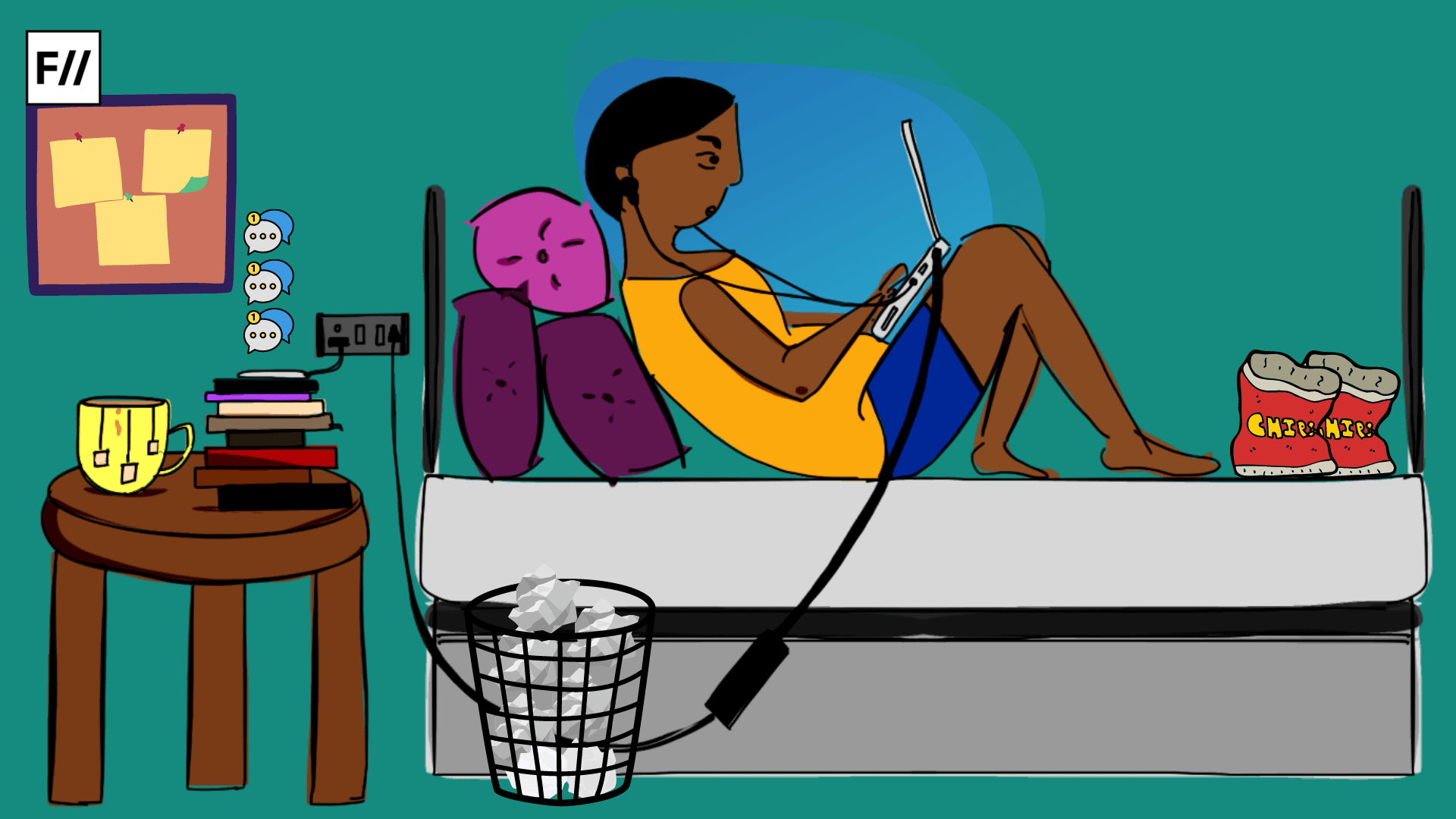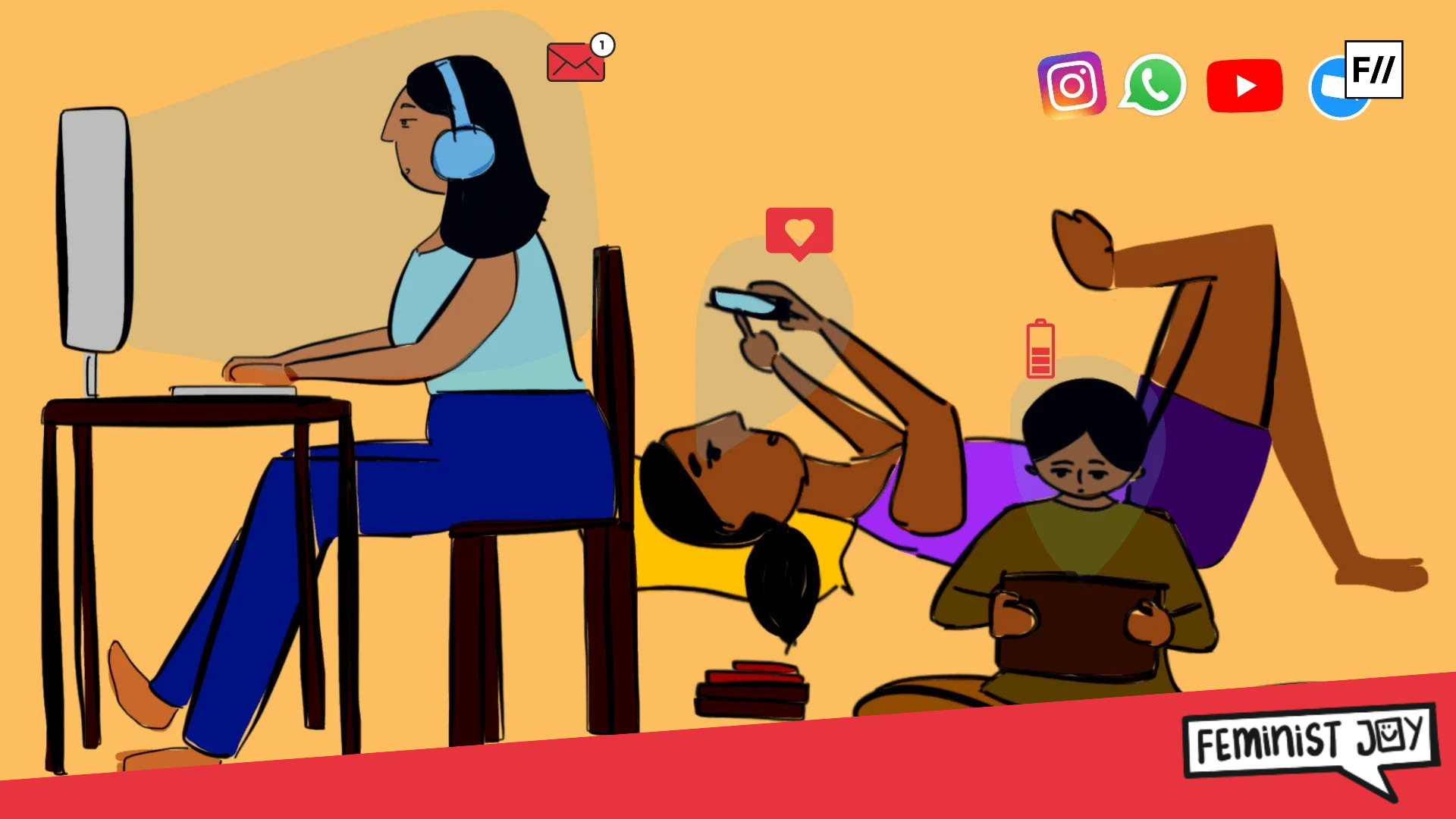Imagine a place where simply saying ‘I am going insane‘ earns you memes, reels, and voice notes. Where no one judges you or gives you advice for your phrase ‘I am tired of everything‘, instead getting the reply of ‘same‘, flooded with heart emojis and some funny GIFs: a place where there’s no need to justify your despair and explain your fear, where these unending problems also become means of laughter.
This place resides in the group chat and personal DMs with four women who know too much and laugh together as if there is no tomorrow. It all began in school, a short Recess period, and later with an exchange of phone numbers and Instagram handles. This digital space has become part of our daily resistance, strengthening feminist solidarity and acknowledging each other’s struggles.

This bundle of joy, “Diwaani Mastani,” is a chat group that we have renamed several times. It actually does not matter what the title is; it never fails to provide a safe and comforting place.
This group never fails to make me laugh and feel high in spirit, not just because of our chats, but also because of the memes and reels full of feminist content that keep the group lively: from sending tweets and memes criticising patriarchy to open discussions where we are figuring out our sexuality. Sometimes these unintentional chats and reels sound silly, but this is what makes it blissful and precious.
Somewhere between the jokes, we find tweets on wage gaps and gender stereotypes. We also form a deep connection with no filter.
It is not only the source of laughter but also of solidarity. Somewhere between the jokes, we find tweets on wage gaps and gender stereotypes. We also form a deep connection with no filter. The purpose actually is not to intellectualise feminism, but to express our anger, exhaustion, and hilarious side without any pretense.
Emotional support through memes and messages
Sometimes it even happens that we stop getting any notifications in the group. But when it starts again, it actually feels like it never stopped. From nowhere, a friend messaged:
‘Who run the world? GIRLS‘
And then it all floods in:
A meme of Beyoncé
A GIF that read: Wow, the power of women.
My response: Absolutely, unstoppable and invincible.

These are the small moments where we do not talk about feminism, but it is something we live. There is a humour in it which becomes a part of healing through unstoppable laughter.
Not just in moments of laughter, but these DMs, memes, and reels are also there through breakups, family chaos, academic failure, and many other challenges. All this is actually holding us and reminding us that we are not alone. In this digital era, this new way of interaction keeps our spirit alive when words fall short.
Resistance through reels
Sending a meme that mocks societal beauty standards, a reel about workplace sexism, sharing a screenshot of family expectations, and dating app horrors. These are not some random online moments; they are small but powerful forms of resistance.
Resistance is actually messy, emotional, and even fun. In this respect, the group is not just digital chatter; it’s a lifeline.
Resistance is actually messy, emotional, and even fun. In this respect, the group is not just digital chatter; it’s a lifeline. It gives us the idea that feminist solidarity is not always required to be loud in grand spaces; it can actually exist in those tough times when someone understands you and makes you laugh, and simply says, ‘I am here, don’t worry‘. In the late night when you feel lonely and disheartened, a simple meme or text makes all the difference. This kind of support is also a form of resistance, which is soothing, constant, and very strong.
Together, even in silence
I often wonder what joy really means in the feminist realm. It is usually assumed that only big protests or scholarly discussions can be feminist spaces; no doubt they are. But for many women, the deepest joy comes from silly reels and late-night voice messages. It’s about being honest when we say, ‘I am not okay‘, and hearing back, ‘You are not alone‘, and sending selfies, memes, and reels until we feel better. These kinds of conversations are not for show. It gently resists a world that tells us to stay polite, silent, and to keep sacrificing our needs. In these chats, we say no to all.

This digital advancement provides a new way of communication, which can sometimes silent yet empowering. Even when we are not actively chatting, the group still feels present, like a quiet background. It is in the memes that we think about sharing, or simply just by knowing someone is there if we need them.
Sharing memes, DMs, reels, and messages is a feminist act in our group because they’re about caring, resisting, and believing that we need to be loud, bold, and supportive, all at once. We will always be there to lift each other up when we need it the most.
About the author(s)
Himani is a postgraduate in Political Science from Ramjas College, University of Delhi with a keen academic focus on gender, culture and social justice. Her academic and field experience includes research and project coordination in areas such as tribal entrepreneurship, environmental advocacy and community service.





